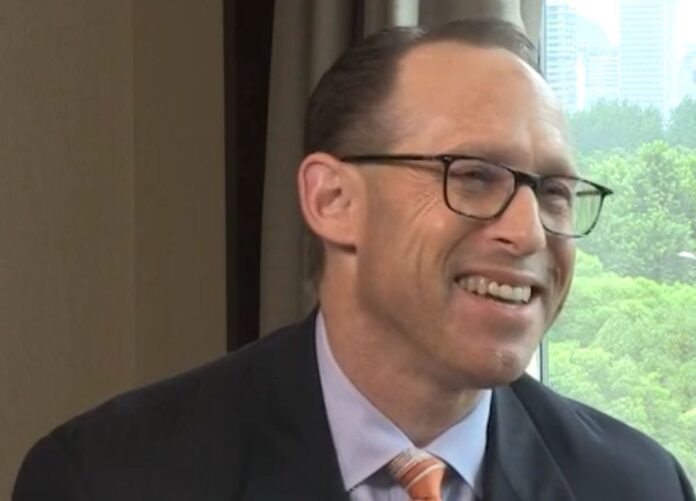Lurie takes on new role after leaving AT&T Mobility
Glenn Lurie, who retired as president of AT&T Mobility in September, has been named CEO of telecom software company Synchronoss Technologies.
Steven Waldis, Synchronoss’ current CEO and chairman of its board of directors, will transition to serving only as chairman of Synchronoss’ board. Lurie will also be a member of the board as CEO.
“Glenn is a highly accomplished, transformational and well-respected leader with a proven track record of success and innovation in the telecommunications industry,” said Waldis. “Glenn’s knowledge of the wireless and media space, broad industry relationships and operational acumen are second to none, and make him the ideal leader to drive the next chapter of success for Synchronoss. I have worked closely with AT&T for many years and have seen firsthand the profound impact Glenn can have on all aspects of a company, especially his ability to launch innovative new businesses and products. Glenn also brings a strong reputation for his people first leadership style and ability to take his teams to the next level of success. Along with the rest of the Synchronoss board and management team, I am excited to welcome Glenn and look forward to working alongside him as we execute a more focused business strategy that builds upon our footprint and expertise in cloud, messaging and digital transformation.”
Lurie’s appointment is among a number of changes that Synchronoss is making to strengthen its focus on serving telecom, media and technology companies after a strategic review earlier this year. On Tuesday, Synchronoss announced that it sold its subsidiary Intralinks Holdings to an investment fund affiliated with Siris Capital Group for approximately $1 billion plus additional investment from Siris-affiliated companies of about $185 million. Intralinks will operate as an independent, privately owned company headed up by Leif O’Leary, who was formerly executive vice president of strategic financials for Synchronoss.
“With the completion of the Intralinks transaction, Synchronoss is poised to focus and advance its position as a leading and trusted technology product provider to telecommunications, media and technology (TMT) companies,” said Waldis, in a statement on the Intralinks divestment. “Our renewed focus on the core TMT business allows us to leverage our expertise and drive innovation in these evolving markets and capitalize on long-term growth opportunities in the space. Following this transaction, we expect to have the financial flexibility needed to advance our strategy and pursue key growth sectors in cloud, messaging and digital transformation with the goal of maximizing value for shareholders.”
“I have long admired Synchronoss and I am honored to join the Company as its next CEO,” Lurie said. “As a long-time customer at AT&T, I have seen Synchronoss’ innovative set of technologies and incredible people that have the proven ability and track record for driving revenue and reducing costs for customers around the globe. I look forward to extending and accelerating this history of success as we focus on our personal cloud, messaging solutions and digital transformation products while growing and scaling the Company’s core platforms to the entire TMT ecosystem. Given the board’s recent strategic review, the significant investment and vote of confidence from Siris Capital, and the progress the Synchronoss team has made with the transformation taking place in the industry, I believe this is a solid inflection point for the company, and I am privileged to lead the resurgence. I look forward to working closely with the Synchronoss team to drive innovation and strengthen our position as a global market leader, with the goal of delivering increased value for shareholders.”
Before taking charge at AT&T Mobility, Lurie managed AT&T’s prepaid brands and built the carrier’s internet of things business, which was previously called the emerging devices unit. Prior to that, Lurie was part of Cingular Wireless, a joint venture formed by BellSouth and SBC, the “Baby Bell” that bought AT&T in 2005 and adopted the AT&T name. AT&T Wireless operated under the Cingular name for three years.
In 2007, Cingular changed its name back to AT&T, and Apple introduced the first iPhone. Lurie was AT&T Mobility’s president of national distribution, and he negotiated the deal that made his company the only carrier to offer the iPhone for several years.

